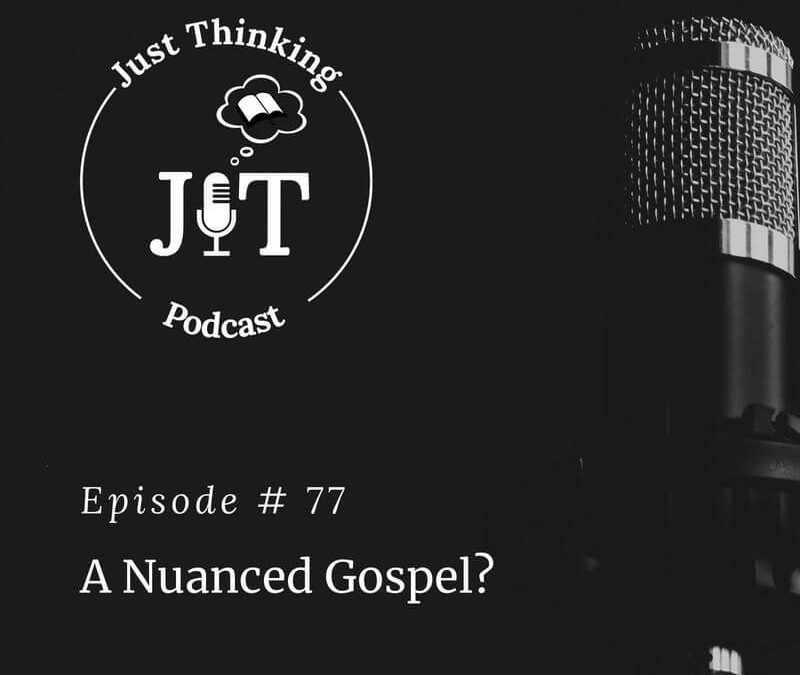Reading Time: < 1 minute
Nuance. It’s the word du jour among many professing evangelicals today. But what does the word “nuance” mean and how does that meaning influence and impact us as evangelicals in terms of how we are to understand and interpret the Word of God? Listen as Darrell and Virgil (Omaha) look to the Scriptures for answers to the question: “A Nuanced Gospel?”
Resources
Related episodes
- N/A
Related blog articles
- N/A
Related external media
- “Nothing But The Truth“ (John MacArthur, Grace to You)
- Black Theology: A Documented History: 1966-1979 (James H. Cone)
Support
To support the podcast, please click here or copy/paste the following link into your browser – https://justthinking.me/support/
Disclaimer
© Darrell B. Harrison and Just Thinking…for Myself 2012-2020. Unauthorized use and/or duplication of this material without express and written permission from this site’s author and/or owner is strictly prohibited. Excerpts and links may be used, provided that full and clear credit is given to Darrell B. Harrison and Just Thinking…for Myself with appropriate and specific direction to the original content.


Gentlemen, this was another great effort. I so appreciated the “Nuanced Gospel”. Nearing the end of your presentation, I was reflecting that a nuanced gospel is essential relativism. Moral relativism, that which Francis Schaeffer and many others have written to denounce, once hoped to get just a boot into the door of our churches, but has now apparently had the door opened and is receiving a warm welcome.
I have one question regarding the vision statement of ReVoice and the scriptures Darrel used to counter their statement. Darrel particularly pressed the issue that no one born again would live in sin as articulated in Matthew and Revelation, that those individuals reach such a point by articulating their sin and repenting of it. The vision statement has two words that caught my attention, “lifelong celibacy”. Does that caveat within the vision statement loose its power if it is not preceded by an admission of sin and a stated desire for repentance? Is ReVoice remiss to exclude those actions as necessary and would you consider the vision statement to be more scripturally aligned if it mentioned admission of sin, and desired repentance preceding the necessary action of “lifelong celibacy”, which by my understanding would indicate a desire to avoid living in sin as mentioned by Darrel in the Matthew and Revelation texts.
Again, many thanks for what you two are doing with this podcast.
David Dean.